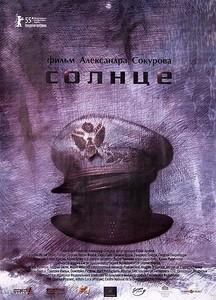The Sun

Susan Sontag, the recently departed intellectual and devout cinephile, proclaimed Alexander Sokurov to be the most ambitious and original director of his generation. From the technically audacious costume drama Russian Ark - shot in a single take in the Hermitage - to the emotionally raw, viscerally stylized parent-and-child elegies The Second Circle and Mother and Son, Sokurov has exerted a rigorous ingenuity throughout his wildly diverse projects. Marked by Sokurov's oblique narrative style and an appropriately stately pace, The Sun follows Moloch (on Hitler) and Taurus (on Lenin) as the third installment in his bold, ongoing series on those few figures who have held "ultimate power." This formidable work takes as its subject Emperor Hirohito (Issey Ogata), spanning the period between August 1945 and New Year's Day, 1946, during the American occupation of Japan. While many ordinary people in Sokurov's films have been treated by his camera as if they were holy and ethereal, The Sun details Hirohito's renunciation of his divinity and his transformation from a deity into the humbled man who surrenders Japan in World War II. His fate is to be determined by General Douglas MacArthur (Robert Dawson) and the meetings between these two very different individuals form the core of this mesmerizing, demanding epic. Sokurov chooses to treat Hirohito sympathetically, emphasizing the number of lives he saves by asking his people to lay down their arms as the Allies advance, and the dignified manner in which he takes his mistreatment at the hands of the invaders. This is an intensely challenging role and Ogata - best known for his work in Edward Yang's revered Yi Yi - plays the emperor with great sensitivity and even humour, keeping his nuanced character perpetually balanced on the razor's edge of innocence and experience, meekness and omnipotence. Sokurov has claimed that "the character is an inexhaustible artistic object" and The Sun does not merely succeed as the first attempt at examining the life of Hirohito - as a man and not a god - in close-up; thanks to Sokurov's preternatural vision, it is also a strikingly singular aesthetic experience.